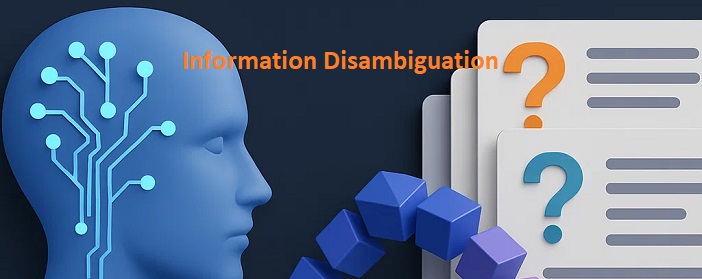04-July-2025
When AI Gets It Wrong Why Information Disambiguation is Critical Now

In today’s digital world, people expect instant, precise answers. Whether you’re searching Google or using Generative AI tools like ChatGPT, Gemini, and DeepSeek, the replies often look authoritative and trustworthy. But behind this confidence lies an uncomfortable reality: AI doesn’t verify facts—it stitches together data from countless sources, many unverified or outdated.
As a Generative AI and disambiguation expert, I’ve seen firsthand how this gap creates real-world damage. When government departments, businesses, or institutions fail to maintain structured, verified online information, AI models are forced to guess. Sometimes these guesses are harmless. Other times, they undermine public trust, create confusion, and cause financial loss.
A case study I conducted highlights the stakes. Tourists searching for Kalvari Mount Viewpoint in Idukki were shown a Google Knowledge Graph with a private, unrelated phone number and directions pointing to the wrong location. A government-owned restaurant wasn’t listed at all. The result: visitor frustration and lost revenue.
Another example involved a museum in Thiruvananthapuram, where conflicting addresses and duplicate, unclaimed listings left the door wide open for misinformation—or worse, hijacking by opportunistic third parties. Without an authoritative profile to anchor AI-generated content, these platforms simply propagate confusion.
This problem has intensified as Generative AI tools gain popularity. Unlike search engines that display links for the user to cross-check, AI produces text that feels definitive. For most people, it’s not obvious whether a phone number or address comes from an official source or an unverified forum post.
Yet there is a solution. Information disambiguation means clarifying every piece of data—names, locations, services—so there’s no room for misinterpretation. Done correctly, this involves structured schema integration, knowledge graph verification, and consistent metadata maintenance. When you have a single, authoritative source of truth, AI has no reason to guess.
Some institutions are already doing this well. Look up the British Museum, and you’ll see a robust Knowledge Graph displaying everything from its logo and verified address to popular visiting times and official website. It’s a clear, trusted reference point that prevents confusion and protects reputation.
Conversely, when organizations neglect their online presence, others fill the vacuum. It’s called “astroturfing”—where private businesses, competitors, or even malicious actors manipulate search visibility, sometimes blending or replacing official data. In tourism, this diverts revenue. In health and education, it creates serious risks to public welfare.
In multilingual contexts, the stakes rise further. Generative AI can translate questions into Malayalam, Hindi, Arabic, or German—but if the underlying information is incomplete or inconsistent, the errors simply scale across languages.
As digital engagement becomes central to public services and business success, the importance of verified, structured data cannot be overstated. Information disambiguation isn’t a technical luxury—it’s the new baseline for credibility and trust.
If you’re responsible for your organization’s public information, ask yourself: Is your data consistent, verified, and protected? Because in the era of AI, the cost of ambiguity is higher than ever.
Jayakumar K, Generative AI and Information Disambiguation Expert